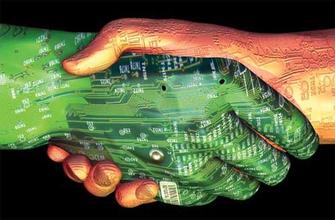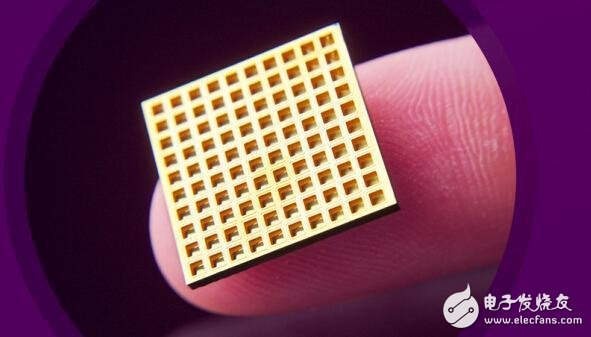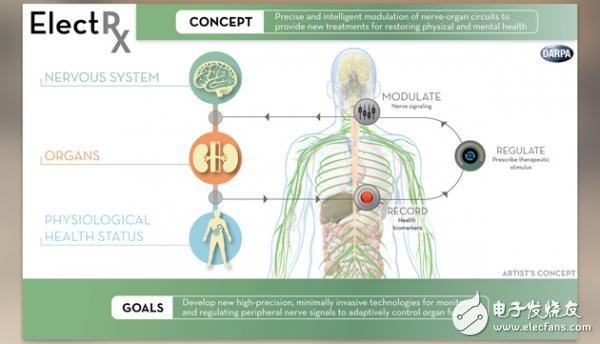Chip implants are moving from sci-fi movies to reality. A study recently published in the scientific medical journal conversion (Science TranslaTIonal Medicine), said chip implanted era is getting closer to our lives. For example, a patient with osteoporosis recently implanted a chip from the waist, and the drug in the chip was able to remotely control activation. Fortunately, this test showed no side effects for the patient in the case of releasing the correct dose.
A US company has developed a method of controlling contraception through a remote chip, which is expected to be officially launched in 2018. Interestingly, more and more people seem to be resistant to implanted chips. A survey shows that a quarter of Australians do not mind implanting chips under the skin to make payments. Perhaps in the near future, humans will become smarter and healthier with the help of implanted chips.
Hand brush access control
The Swedish team of Biohacking Group has developed a chip that can emit radio waves, identify specific targets and read and write relevant data. Recently, a company in Stockholm, Epicenter, implanted the chip on the back of the employee's hand. When entering and leaving the door, the door can be opened by hand back, and it can print, take a bus, and so on. Epicenter founder Felicio is very optimistic about the market prospects of this technology. He said, "It doesn't take much pain to install an RFID, just like an injection, it can be installed in a few seconds."
RFID (radio frequency) chips can store data and also support wireless transmission of NFC (Near Field Communication Technology). Just swipe your phone and gently scan the information stored in the chip, or save new data. In the "life cycle" of the entire chip, the write operation can exceed 100,000 times, and the storage capacity is as high as 1G, so there is no need to worry about the trouble of replacing it after a certain period of time. The disadvantage of currently using the ID card type access control system is that the security is poor. If a company needs multiple access control, the setup is quite troublesome. Relatively speaking, the implanted chip has the characteristics of passive, contact-free and easy to communicate, making it easier and safer to use.

Contraceptive chip

The US company MicroCHIPS has developed a contraceptive method controlled by a remote chip to prevent contraception by releasing trace amounts of hormone into the blood. The contraceptive chip can be used for up to 16 years after being implanted under the skin, such as the buttocks, upper arm area or abdomen. If a woman wants to conceive, then she only needs to close the implant through the remote chip, just as simple as adjusting the TV volume with the remote control. This also eliminates the trouble of consulting a gynecologist.
The test report of the MIT, such implants MicroCHIPS volume of approximately 20 x 20 x 7 microns, works like Norplant agent per day by releasing a slight amount of blood to norgestrel (a contraceptive hormone ) to achieve the purpose of contraception. Because this kind of implant is unconscious and automatic when releasing the contraceptive hormone, it has a very obvious advantage over the traditional contraceptive pill, because the latter only takes effect on time every day. If you forget to eat it any day, then it is very May be unexpectedly conceived.
However, this contraceptive technology still has shortcomings. MicroCHIPS needs to continue to improve and optimize before it is formally submitted to the US Food and Drug Administration. For example, in the aspect of chip encryption, it is necessary to continue testing to ensure the data security of the users. Moreover, whether MicroCHIPS will cause certain side effects to the users like subcutaneous implanted contraceptives remains to be further verified. These potential side effects include irregular bleeding, dizziness, nausea, and weight gain. If it goes well, the MicroCHIPS contraceptive device will be officially launched around 2018, leaving a long time to optimize its products.
Disease-modifying chip

Compared to the access control or contraceptive chips, the chip that makes the body "self-healing" sounds more like black technology. The US Department of Defense Advanced Research Projects Agency (DARPA) is working on the development of a tiny implanted chip. DARPA plans to create a thinner implant than nerve fibers. This implant monitors the human nervous system, organs and overall health and regulates the system by triggering an electrical impulse. In a way, it's a bit like setting up a pacemaker for the central nervous system that helps people fight arthritis and other inflammatory diseases. From this point of view, in the future, we will no longer need drugs, and we can maintain our health by implanting self-healing chips. The chip ensures that when a disease is detected in the organ, it summons a powerful immune system to quickly resolve the problem.
In addition to DARPA, Boston University is also testing a new bionic pancreas. It has a miniature sensor that sits on the needle inside the implant and is connected to a smartphone application to monitor blood sugar levels in diabetic patients. A British scientist is also experimenting with implanting a chip into the body, connecting the nerves in his arm to the computer through a chip. In this way, the computer can not only record the movement of the hand nerves, but also issue instructions to let the arm move. Once this test is successful, it will give the paralyzed patient hope for recovery.
Problems with implanted chips
Although the potential of human body chips in the medical field is great, there are also some technical and ethical issues. For example, Application Data's "Verichip" is a "passive chip" that only generates information when nearby instruments scan it. In the event that the patient is sent to a hospital where there is no scanner to read the data, the body chip will not work. Second, the energy source of the chip is also a problem. Designers will have to develop a dedicated energy device that can continuously supply energy to the chip, and the device must be small enough to fit under the skin. In addition, installing tiny implanted chips like DARPA remains a huge challenge. Current neuromodulation implants are bulky and require complex surgery to install, a technique that is unlikely to be achieved in a short period of time. In addition to the technical level, the ethical implantation of chips also faces complex problems.

One episode of the British drama "Black Mirror" explores the relationship between technology and ethics. The protagonist implants a memory chip behind the ear, and the eyes become a camera, which can record everything that happens in front of the eyes, and can be recalled at any time. This looks cool, right? But with this technology, the male protagonist found his wife's infidelity, and even his son may not be his own. Under the pain he removed the memory chip. It seems that implanting chips is not always good.
Home Solar System ,Solar Panel System,Solar Energy System,Solar Lighting System
jiangmen jieken lighting appliance co.,ltd , https://www.jekenlighting.com